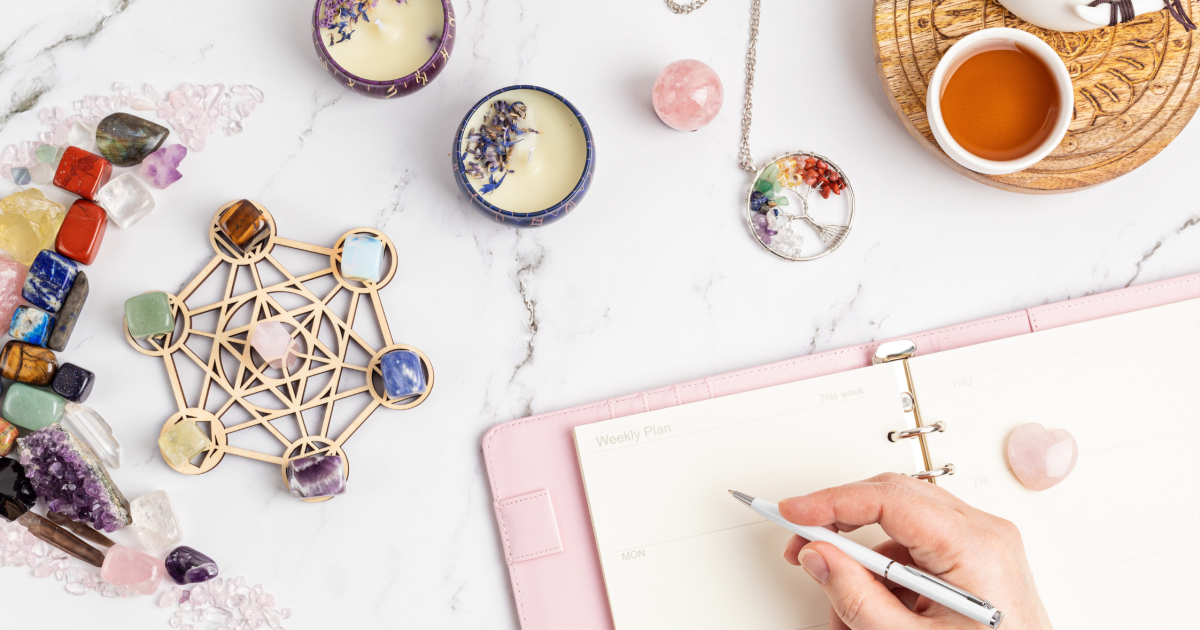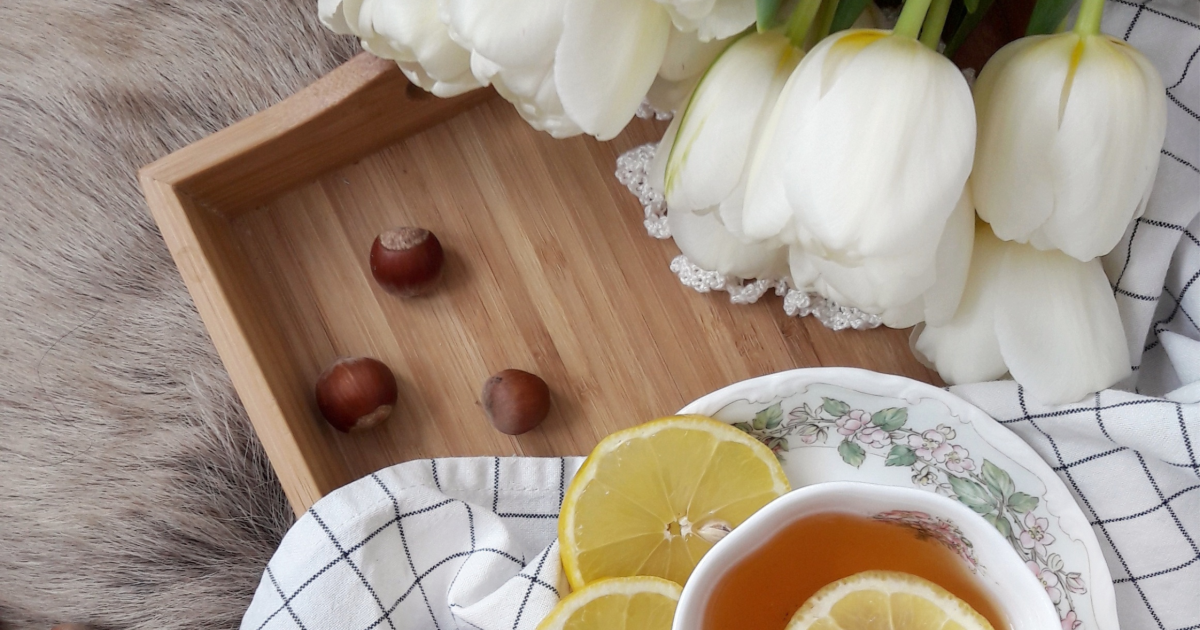Another year, another mountain of “New Year, New You” pressure. But this time, let’s focus on goals that matter to YOU, not society’s checklist. Instead of falling into the trap of unrealistic New Year resolutions, let’s take a different approach and build something that lasts. I won’t be diving into why we often set unrealistic expectations at the start of January, or why it leads to inevitable failure. If you’re curious about that, check out my previous blog post, here, specifically on this topic .
This guide is for you if:
- You’re staring at your goals for the year and don’t even know where to start – feeling overwhelmed and unsure.
- You’ve tried countless times to improve but feel like you’re stuck in a loop of failure, so much so that you’ve almost given up.
- You’re genuinely interested in making lasting changes and upgrading your life, but the idea of actually taking the first step seems too daunting.
Here’s the deal: I know the struggle. I’ve been there. You want to improve, but you’re unsure where to begin or how to make it stick. Or maybe you’ve tried over and over and feel like you’re running in circles. But what if I told you that the secret isn’t in chasing perfection, but in consistency and simplicity? Let’s break down the big idea of “self-improvement” into manageable steps that will actually lead to real progress.
In this guide, we’re going to explore practical, “bite-sized” changes that won’t overwhelm you or leave you feeling like a failure.
Why?
Because we’re focusing on the basics – the fundamental habits and goals that everyone, no matter their age, career, or lifestyle, should have in place. These are the essentials that lay the foundation for meaningful growth and lasting progress. So let’s dive straight into it!
Table of Contents
The Four-Hobby Concept for Goal Setting:

I’m not entirely sure if this idea is original or if I just stumbled across it in a quote I read, but it stuck with me. The quote goes something like this:
“To be happy in life, develop at least four hobbies: one to bring you money, one to keep you healthy, one to bring you joy, and one to bring you peace.”
This insight comes from the book The Dusk And Dawn Master: A Practical Guide to Transforming Evening and Morning Habits, Achieving Better Sleep, and Mastering Your Life by Stan Jacobs.
Now, before you think this is some sort of revolutionary theory, let me reassure you – it’s really not that complicated. In fact, I think it’s one of the simplest, most effective frameworks you can use to start getting clarity in your life.
This quote really resonated with me because, at its core, it speaks to the idea of balance. You don’t need to have it all figured out, but if you can focus on four areas that enrich different parts of your life, you’ll be on the path to real happiness and, importantly, personal growth.
What is Four-Hobby Concept About?
Here’s how I see it: no matter where you’re at in life, whether you’re starting fresh or looking to make a change, being happy doesn’t require some monumental shift. Happiness can come from developing habits that are grounded in what truly matters. And let’s face it, if you don’t know exactly where to go or what to do with your life, focusing on happiness through balanced goals is a great place to start.
In life, there’s no “one-size-fits-all” formula for success, especially when it comes to personal growth, wealth, or fulfillment. What works for one person might not work for another, and that’s okay. This is why I’m sharing a curated list of ideas in each section – to give you direction without restricting your options. These lists are meant to help you explore different pathways, from earning money to achieving peace, and give you the tools to identify what truly resonates with you. Whether you’re looking to boost your finances, nurture your health, or find joy, the journey is personal.
The key is finding what works for YOU, and that’s something only YOU can decide. So dive into these ideas, experiment with them, and use them as stepping stones to create your unique path.
Connecting the 4 Hobbies Framework to Goal Setting
Setting goals is a vital part of creating a purposeful and fulfilling life, but it’s easy to get stuck when trying to determine where to start.
One approach that I FEEL can bring clarity is the 4 Hobbies Framework. By focusing on four distinct hobbies, each contributing to a different aspect of your well-being, you create a solid foundation for personal growth and achievement. Rather than overwhelming yourself with grand goals, this framework encourages small, sustainable progress.
Each of these hobbies serves as a stepping stone toward your overall goals, allowing you to break them down into manageable, enjoyable tasks. The beauty of this framework is its flexibility – it can be customized to fit your unique life, ensuring you stay aligned with your personal values and needs.
As you incorporate these hobbies into your daily routine, you’ll naturally create momentum in each area. Whether it’s working toward financial independence, staying healthy, finding joy, or nurturing peace, these hobbies will push you forward without overwhelming your mind or energy. The key here is to create a balance that works for you, helping you move closer to your big-picture goals while ensuring you remain grounded and focused on the present.
1. The Money Maker Hobby (Financial Growth):

Let’s talk about one of the most important goals you can have – financial growth (aka money making hobby).
This is the essential goal that can give you the freedom and independence you need in your 20s and beyond. Many people overlook this aspect, but I strongly believe that financial independence is a basic life skill. Just like cooking, it’s something that everyone, regardless of gender, should learn early on.
No one’s forcing you to aim for being a millionaire (though there’s absolutely no harm in doing so if that excites you). But if that feels overwhelming, start small.
How to Get Started With Money Making Hobby?
The best starting point is to have some source of income, no matter how small, and begin saving. Even if it’s not a huge amount right now, it’s the foundation for financial freedom later.
1. Income Goals:
The first step is obvious – start earning.
If you don’t have an income stream, now’s the time to find one. Starting a side hustle or monetizing your skills is a great way to dip your toes into the water. Freelancing is an excellent way to begin – whether it’s writing, graphic design, consulting, or anything else you’re good at.
If you’re feeling like you don’t have any skills, trust me, YOU DO! It just takes time to figure out what those are. Think about what you enjoy – your hobbies or passions – and see if there’s a way to turn them into an income stream. From crocheting to painting, there’s a market for everything these days.
2. Saving Goals:
Saving money might seem like an afterthought, but it’s just as important as earning.
Start small if you need to, but start!
A good goal is to save a set percentage of your income each month. If you’re just starting out and don’t have a steady income stream, you can save whatever you can from your pocket money or from any financial support you receive from your family. Even if it’s just $5 a week – that’s something. And by the end of the year, you’ll have $5 x 52 = $260. Sure, it’s not a fortune, but it’s a solid start.
If you already have a source of income, even if it’s small, make sure to prioritize saving. Create a savings plan and stick to it. Don’t worry about not having a ton of money to put aside – just make it a habit. For instance, if you earn $100, save $5 or $10. Don’t feel pressure to save more than you can afford, but DO SAVE!
Money-Making Hobbies You Could Try:
- Freelancing (e.g., writing, graphic design, social media management)
- Photography or videography (selling stock footage or prints)
- Crafting and selling handmade goods (e.g., jewelry, candles, art)
- Blogging or content creation (e.g., monetized YouTube channel, affiliate marketing)
- Tutoring or teaching (online or in-person)
- Selling vintage or thrifted items
2. The Health Keeper Hobby

Health is not just about physical fitness; it’s a balance between both physical and mental well-being.
Physical health is rooted in what we do with our bodies – movement, exercise, and what we put into our bodies through food. But mental health is equally important. How we feel, manage stress, and process emotions directly affects our overall well-being. True health comes from nurturing both body and mind, so it’s essential to focus on both aspects to feel your best, inside and out.
Physical Health
After trying countless diet plans and workout routines, I came to realize that this simple equation holds the truth:
Body Movement + Diet (aka nutrition) = Physical Health.
It’s as simple as that!
Be Mindful of What You Eat
Diet is such a vast topic that it deserves its own blog post, but I’ll touch on the basics here. A balanced diet is essential, and it’s all about combining healthy fats, dairy, greens, carbs, and protein.
The trick is making sure you’re eating them in the right portions. I’ll dive deeper into this soon, but for now, a quick tip: portion control is the secret to not only eating healthier but also helping you lose and maintain your weight. Now many people consider portion control as a “diet” but it’s not. According to experts, it’s a “lifestyle”, probably the most sustainable one. It might seem a bit complex to understand but don’t worry, I’ve got you. Grab “Portion Perfection” by Amanda Clark and you are good to go. This the most comprehensive and easy-to-understand visual guide on portion control, covers pretty much every aspect. Definitely worth a read!
Incorporate Physical Activity
Physical activity doesn’t have to be overwhelming. You don’t need to sign up for expensive workout plans or apps to get started.
Just move your body!
Doing something is always better than nothing. Start with a simple 15–30-minute walk daily or even a post-meal indoor walk for 10 minutes. Another easy way to sneak in some activity is by habit stacking – like reading while walking for 10 minutes. The goal is to build the habit of moving your body every day, even in small bursts. If you are looking for some cool and effective ideas to incorporate physical activity into your daily routine, check out my blogpost on some easy ways to do so!
Mental Health

Now that we’ve covered physical health, here’s the fun fact: working on your physical health will automatically boost your mental health.
Physical health and mental health are deeply interconnected. When you eat well, it not only nourishes your body, but also your brain. Similarly, any form of movement – whether it’s a walk outside or an indoor workout – will always elevate your mood.
But to focus specifically on mental health, there are a few practices (or hobbies) I recommend:
Breathing Exercises & Stretching
Start with some simple breathing exercises or gentle yoga poses to release tension and boost your mood.
It doesn’t have to be complicated – just 5-10 minutes can work wonders. These activities help your body calm down and reset your mind, especially during stressful moments.
Emotional Well-being: Don’t Ignore Your Feelings
I have an academic background in this area, so I could write a whole book on mental health (which, let’s be honest, is exactly why I haven’t posted about it yet—’cause I’ve got a LAWT to say, and my brain’s still over here trying to organize that chaos).
But for now, one of the biggest things I can say is this: don’t neglect your emotions. As adults, we tend to push our emotions aside because we’re busy. You might be feeling sad but tell yourself, “I’ll figure this out later,” and that “later” never comes. Over time, those unprocessed emotions build up, and eventually, they explode in unexpected ways.
So, here’s the key: Deal with your emotions daily. Acknowledge them. If you’re feeling upset and need to cry, cry. If you’re confused or frustrated and want to rant, rant. And if you don’t have someone to talk to, write it down or record a voice memo on your phone. Don’t bottle it up, because unexpressed emotions only cause chaos later.
Health Keeper Hobbies You Could Try:
- Yoga or Pilates
- Running, jogging, or cycling
- Swimming or rock climbing
- Martial arts (e.g., kickboxing, Jiu-Jitsu)
- Hiking or trail walking
- Trying “Clean Eating” Challenges – i.e. no sugar for 30 days, replacing junk food with nuts and fruits etc.
- Journaling / Mindfulness
- Limiting Screen Time
- Me Time (Take time for yourself. If you’re looking to understand yourself better, I recommend trying this Self-Awareness Journal I created. It’s been incredibly helpful in my own life, and I’m sharing it with you as a token of love.)
3. The Joy Bringer Hobby

There’s no denying it: joy is essential to life.
It’s what fuels our days, brightens our spirits, and brings light even in the darkest moments. Yet, in our busy lives, we often overlook the simple, timeless things that can bring us genuine joy. The truth is, joy doesn’t always need to be earned, and it doesn’t come from grand gestures – it often comes from the small, everyday experiences that make life worthwhile.
Universal Joy Triggers
Some things just never fail to bring joy to most people, no matter their background or situation. Here’s a look at the timeless joys that we can all appreciate:
- Gratitude: It’s amazing how a simple shift in perspective can change everything. Gratitude doesn’t just make you feel good – it has the power to rewire your brain to focus on the positive. Whether it’s writing down three things you’re thankful for each day or simply taking a moment to reflect, gratitude is a powerhouse for joy. If you are beginner or just someone short on time, the Five Minute Journal would be your go-to solution to add this joy trigger to your routine. Its pre-set prompts take the guesswork out of journaling, helping you focus on gratitude, goals, and personal growth in just minutes.
- Connection: Meaningful relationships are often the root of happiness. Connecting with friends, family, or even strangers can uplift your spirit in ways words can’t describe. Make it a point to reach out to someone you care about, whether it’s a quick text or a face-to-face chat.
- Nature: Spending time in nature has been scientifically proven to reduce stress and elevate mood. Whether you’re going for a walk in the park or just sitting outside, immersing yourself in natural beauty can instantly boost your joy levels.
- Laughter: There’s nothing like a good laugh to lighten your mood. Whether it’s a funny video, a joke from a friend, or simply watching a comedy, laughter is a universal language of joy.
The key to experiencing joy regularly lies in cultivating habits that allow us to find it even in the most mundane moments. Start small – maybe it’s a 5-minute morning ritual, a gratitude practice, or setting aside time for a hobby that makes you smile. These small efforts can gradually compound to make joy a more consistent part of your life.
Joy Bringer Hobbies You Could Try:
- Painting, drawing, or sketching
- Gardening or plant care
- Cooking or baking creative recipes
- Playing board games
- Knitting, crochet, or pottery
4. The Peace Seeker Hobby

In a world that’s constantly moving, it’s easy to feel like you’re always running, always chasing something. We get so caught up in achieving more, doing more, and reaching the next milestone that we forget to pause and reconnect with the peace that resides within us.
Peace isn’t just the absence of noise or chaos – it’s the feeling of stillness and calm that can anchor us, even in the most turbulent times.
The good news? Peace is something we can intentionally cultivate in our lives, no matter what’s going on around us.
Finding peace doesn’t require you to isolate yourself from the world or eliminate all stress (because let’s face it, that’s impossible). It’s about adopting practices that help you slow down, reconnect with your true self, and let go of the noise and clutter.
Peace Bringing Hobbies You Could Try:
Achieving peace might sound like an abstract concept, but it’s actually built on a few simple, actionable practices that anyone can adopt. These are the building blocks that can help you find calm and restore balance in your life:
- Mindfulness: Being present in the moment is one of the most effective ways to calm the mind. Whether you practice meditation or simply take a few deep breaths during stressful moments, mindfulness helps center your thoughts and brings awareness to the here and now. It’s all about letting go of distractions and embracing the peace of the present moment. If you are a beginner and trying to get into mindfulness, check out my guide on mindfulness that includes some easy techniques.
- Setting Boundaries: Peace often comes from the ability to say NO. Saying yes to everything can drain your energy and leave you feeling overwhelmed. Setting healthy boundaries, both in work and personal life, can protect your mental space and help you preserve your inner peace. Don’t be afraid to prioritize your well-being by gently turning down requests that don’t align with your peace.
- Decluttering: Physical clutter often mirrors mental clutter. Simplifying your space can help create a sense of order and calm, making it easier to think clearly and find peace. Start with small decluttering tasks, like clearing your workspace or organizing your living room, and watch how a clean environment supports a peaceful mind.
- Nature and Quiet Time: Sometimes, peace comes from stepping away from it all. Nature is one of the best sources of natural tranquility. Whether it’s a quiet walk in the park, sitting under a tree, or just listening to the sounds of nature, these moments of solitude can help you reconnect with your peaceful center.
- Reading books (fiction, poetry, self-help)
- Birdwatching or stargazing
- Practicing calligraphy or lettering
- Solo nature walks or solo walks at night
Final Thoughts
Alright, you don’t have to be perfect at this or turn your life upside down overnight. Just pick one hobby from each of the four categories we’ve talked about.
Yup, just ONE!
Whether it’s something to make you healthier, wealthier, happier, or more at peace, just commit to it. It might not turn your life upside down overnight or make you a millionaire (let’s be real, no hobby will do that instantly), but here’s the magic: sticking to a small habit over time builds momentum. Even if it’s something as simple as taking a 15-minute walk every day or setting aside $10 a week, the impact compounds. You’ll start noticing the benefits not just in the moment but in the bigger picture of your life.
So, take a deep breath and start small. Pick one, give it a go, and let it work its quiet magic over time. And hey, if it doesn’t click, no worries – try something else! The point is to keep moving forward, one little step (or hobby) at a time. You’ve got this. :))
